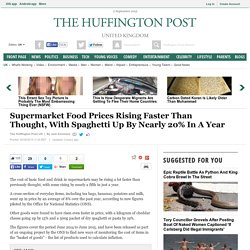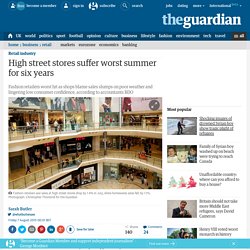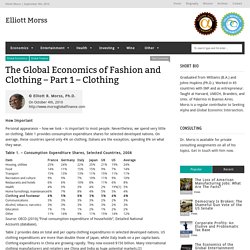

Supermarket Food Prices Rising Faster Than Thought, With Spaghetti Up By Nearly 20% In A Year. The cost of basic food and drink in supermarkets may be rising a lot faster than previously thought, with some rising by nearly a fifth in just a year.

A cross-section of everyday items, including tea bags, bananas, potatoes and milk, went up in price by an average of 8% over the past year, according to new figures piloted by the Office for National Statistics (ONS). Other goods were found to have risen even faster in price, with a kilogram of cheddar cheese going up by 15% and a 500g packet of dry spaghetti or pasta by 19%.
The figures cover the period June 2014 to June 2015, and have been released as part of an ongoing project by the ONS to find new ways of monitoring the cost of items in the "basket of goods" - the list of products used to calculate inflation. SEE ALSO: Rogue Landlords Exploiting Housing Crisis, Causing 'Misery' For TenantsThe Average Pint Could Be Ridiculously Expensive By 2040 The new data has been compiled using a process called "web scraping". James A. High street stores suffer worst summer for six years. The UK high street has endured its worst summer in six years, as volatile weather and the lure of restaurants and holidays kept shoppers away.

Underlying sales, which exclude new store openings, slipped by 1.1% in July according to accountants BDO, meaning stores have seen three consecutive months of decline for the first time since 2009. Sales fell by 0.9% in May and 2% in June. Fashion retailers suffered the worst problems, according to the survey of 85 mid-sized retailers including French Connection, Oasis and Hobbs, with sales at high street stores down by 1.4%. Homewares sales fell by 1.1%, a surprise given the buoyant housing market.
Sophie Michael at BDO said some fashion retailers had tried to cope with the chilly start to the summer by launching their summer sales earlier than normal, only to be hit by a slump in consumer confidence with the economic chaos in Greece. Shoppers’ continued caution comes despite an increase in disposable income this year. The Global Economics of Fashion and Clothing - Part 1 – Clothing. How Important Personal appearance – how we look – is important to most people.

Nevertheless, we spend very little on clothing. Table 1 provides consumption expenditure shares for selected developed nations. On average, these countries spend only 4% on clothing. Italians are the exception, spending 8% on what they wear. Table 1. – Consumption Expenditure Shares, Selected Countries, 2008 Source: OECD (2010),”Final consumption expenditure of households”, Detailed National Accounts (database). Table 2 provides data on total and per capita clothing expenditures in selected developed nations. Table 2. – Clothing Expenditures, Selected Nations, 2008 International Trade As Table 3 indicates, the United States is by far the largest importer of clothing. Richemont Slides as Chairman Says Global Economy Is ‘Precarious’ GENEVA, Switzerland — Cie.

Financiere Richemont SA, the owner of the Cartier brand, fell the most in more than two months after Chairman Johann Rupert said he’s very concerned that the global economy is in a precarious position. The shares declined as much as 3.2 percent to 88.80 Swiss francs, the biggest intraday decline since Sept. 12. The stock was down 3 percent at 88.95 francs as of 1:05 p.m, giving the Geneva-based company a market value of 51.1 billion francs ($56.5 billion).
“It is very, very precarious,” Rupert said at the annual general meeting in Cape Town of Remgro Ltd., where he is also chairman. “There will be tears, but we don’t know when, and we don’t know whether it’s going to be a big inflation or whether it’s going to be a depression. Remgro is an investment holding company with interests including banking and financial services, packaging, wine and spirits, and personal care products. How Will The Global Economy Do In 2015? Here's What You Should Know. The world can be a scary place, George Osborne seems to like suggesting, with every other economy in choppy waters as Britain's economy enjoys increasingly smooth sailing.

Speaking in October, the Chancellor said: "Britain is part of a global economy, but that doesn’t mean Britain is just going to be buffeted by the storms....The eurozone risks slipping back into crisis. Britain cannot be immune from that. " As 2015 nears, HuffPostUK asked various City experts to assess where the risks will lie for the global economy. Will we see Britain rocked by the storms, or emerge to even sunnier waters? Europe in the doldrums The economic drama looks set to continue on our own doorstep as Mario Draghi and European leaders try to pull the Eurozone back from the brink.
The European Central Bank boss infamously pledged to do "whatever it takes" to hold the Eurozone together last time a breakup loomed in 2012, and economists suggest that Italy and Greece's ailing economies will pile on the pressure.